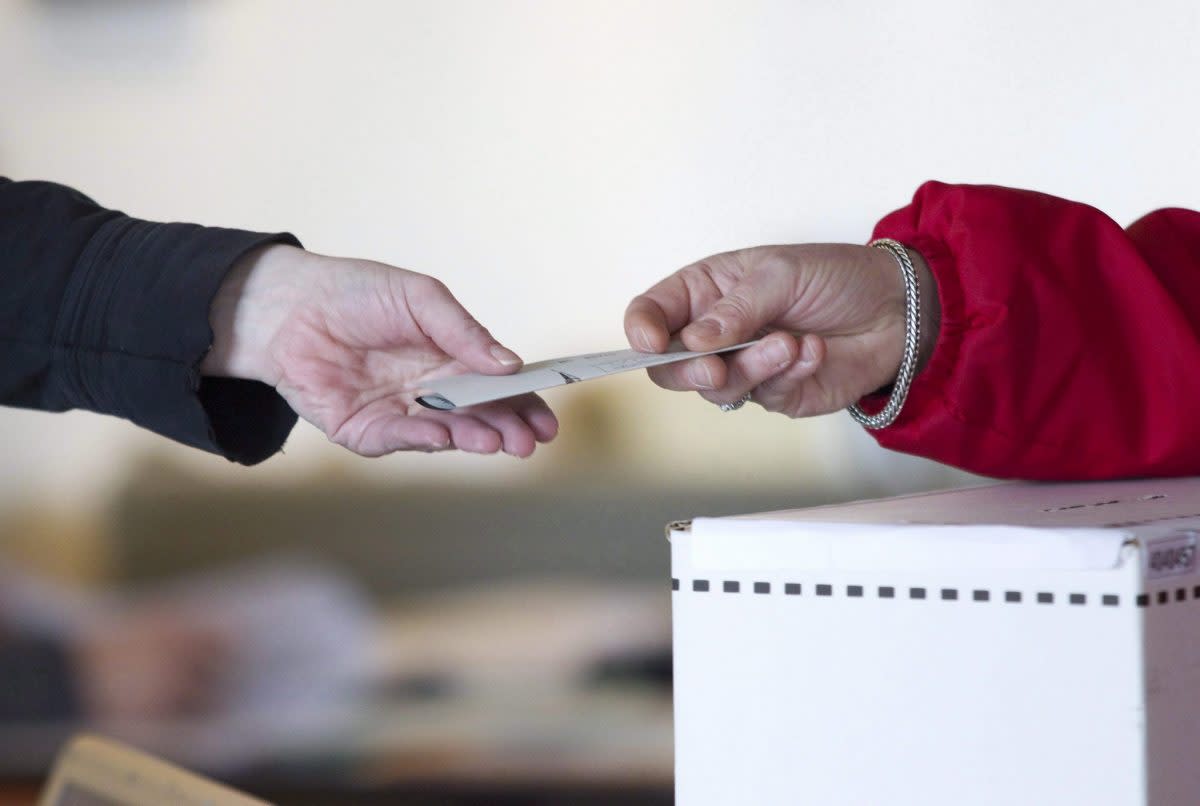As Americans debate electoral college, appetite for reform of Canada's system seems low

As calls to change the electoral college system continue in the United States the appetite for electoral reform in Canada remains low, though government consultations on changing the way Canadians elect their governments continue.
Though Republican candidate Donald Trump handily won enough electoral college votes during Tuesday’s election to be declared the president-elect, it appears that his Democratic rival Hillary Clinton will win the popular vote. Now some Americans are calling for the electoral college to be reformed or abolished, and a Change.org petition asking the college to instead select Hillary Clinton for president has more than 2 million signatures.
“What just happened, I think, will influence the debate here in Canada — but I think in a general way,” Brian Tanguay, a professor at Wilfred Laurier University who specializes in electoral reform, told Yahoo Canada News. “The outcome seems to confirm all of the worst fears about first-past-the-post.”
But though government consultations on federal electoral reform in Canada continue, there doesn’t seem to be much appetite in this country for a significant overhaul of the system, Tanguay says.
“What happened in the United States is going to serve as a cautionary tale here in Canada and advocates of real electoral reform — something in the direction of more proportionality — will use the U.S. as an example of why we have to move away from first-past-the-post,” Tanguay said.
But those advocates increasingly appear to be in the minority, Tanguay says, for a variety of reasons. “There is a generalized worry across the country that the level of engagement in this debate, outside groups like Fair Vote Canada, is fairly low,” he said.
A survey released by the Broadbent Institute last December found that only 17 per cent of respondents felt the electoral system worked well and didn’t require any changes. But half those who felt changes were needed thought they should be minor.
And this month’s plebiscite on electoral reform in Prince Edward Island did come out in favour of reforming the provincial electoral system, with 52.4 per cent of voters indicating they preferred a mixed-member proportional representation system to elect MLAs. But with only 36 per cent of eligible Islanders voting, Premier Wade MacLauchlan questioned the legitimacy of the results, which he says will be discussed in the provincial legislature.
There is also disagreement on how any changes that do come to our electoral system should be enacted. A poll released by Forum in July found that 65 per cent think a national referendum is required before any changes are made in how their MPs are selected, with the remainder split evenly between not believing a vote was necessary and not having an opinion either way.
The Liberal government has been noncommittal about holding a referendum on electoral reform, saying that the fact that a majority of voters supported parties campaigning on the issue in fall 2015 indicates that Canadians support the idea. The Liberals have also not declared their specific position on electoral reform or clarified which particular system they support, beyond saying that the 2015 federal election would be the last once since Confederation to run on a first-past-the-post system.
A online survey collecting Canadians’ opinions on electoral reform will be available from the Liberal government during December, the National Post reported Monday, but the plans have not been widely publicized. Meanwhile, recommendations from an all-party committee that has spent a chunk of 2016 travelling Canada to speak to citizens about electoral reform are due on Dec. 1.
“I honestly don’t think that the public is really that engaged in the debate,” Tanguay said. “I think this has been a problem for the current round of reform initiatives. There’s a lot of confusion out there and a lot of lack of interest.”
Tanguay himself is currently teaching a course on electoral reform for lifelong learners and says even with his expertise in the subject and the interest and knowledge of his students, the subject is not an easy one to tackle.
“It is difficult going through the mechanics of the different systems and making them intelligible,” Tanguay said.
That technical complication, along with the fact that many alternative systems to first-past-the-post exist, plays a part in reducing public interest in the discussion about electoral reform, he says.



